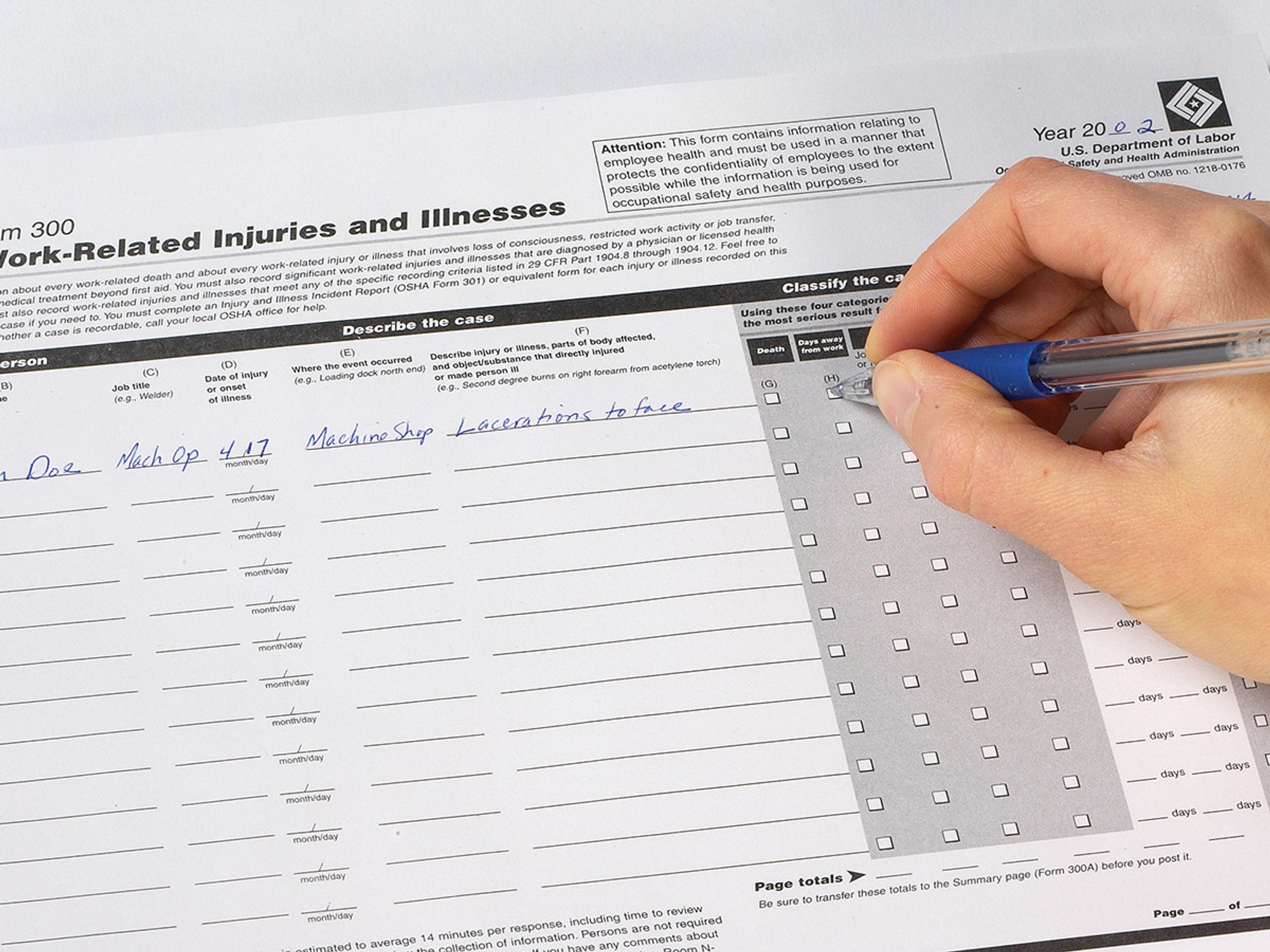What are the recordkeeping criteria?

- Employers must keep records of each fatality, injury or illness that meets the three recording criteria.
Employers must keep records of each fatality, injury, or illness that is:
- Work related; and
- A new case; and
- Meets one or more of the general recording criteria.
In addition, there are recording criteria for specific cases such as hearing loss cases, tuberculosis, medical removals, and needlesticks and sharps injuries. These are found in sections 1904.8-1904.11.
Note that just because an employee makes a report of an injury or illness, that doesn’t automatically mean a case is recordable. In determining whether a case is recordable, an employer must first decide whether an injury or illness has occurred. The employer may consult with a physician or other health care professional for evaluation and may consider the health care professional’s opinion in determining whether an injury or illness exists.
Once it has been determined that an injury or illness exists, employers can consult 1904.4 for a decision tree that show the steps in determining whether or not a particular injury or illness case must be recorded on the OSHA forms.
In most cases, the employer knows within a short time whether a recordable incident has occurred. Sometimes, however, it may be several days before the employer learns that an incident meets the recording criteria. OSHA requires entering each recordable injury or illness on the 300 Log and 301 Incident Report within seven calendar days of receiving information that a recordable injury or illness has occurred.
Some states operate their own OSHA programs. States operating OSHA-approved state plans must have the same requirements as federal OSHA for determining which injuries and illnesses are recordable and how they are recorded. However, for other provisions such as industry exemptions, reporting of fatalities and hospitalizations, record retention, or employee involvement, state-plan requirements may be more stringent than the federal requirements.
